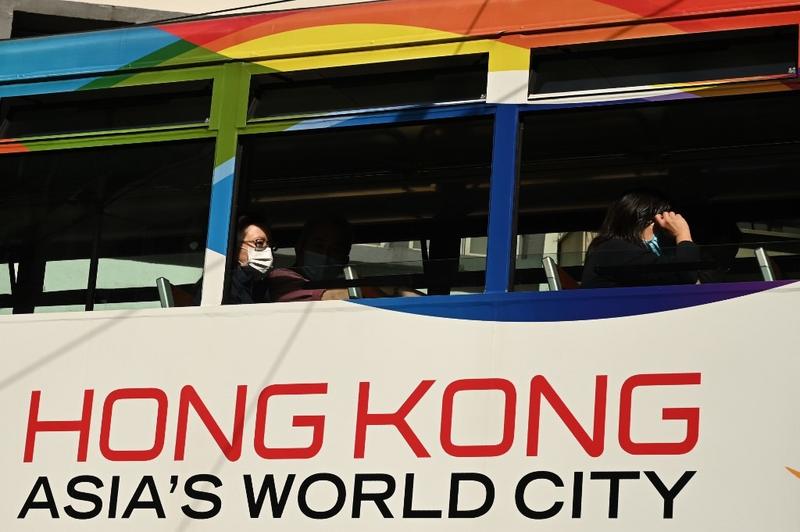 People ride on a tram on a street in Hong Kong on Nov 29, 2020. (PETER PARKS / AFP)
People ride on a tram on a street in Hong Kong on Nov 29, 2020. (PETER PARKS / AFP)
Hong Kong’s private sector conditions show signs of stabilization but business confidence remains negative as a renewed tightening of containment measures due to a new wave of COVID-19 infections threatens to undermine the economic recovery.
Private sector output fell modestly and at the same rate as in Oct, with respondents highlighting subdued demand and job cancellations as reasons for lower activity
The headline seasonally adjusted IHS Markit Hong Kong SAR Purchasing Manager’s Index (PMI) rose to 50.1 in November from the previous month’s 49.8, the highest reading since March 2018. By coming in fractionally above the 50 no-change level, the PMI indicated broadly unchanged business conditions in the private sector.
ALSO READ: HK biz sentiment rises in Oct with PMI at a 30-month high
The PMI index is compiled by IHS Markit from responses to questionnaires sent to purchasing managers of around 400 private sector companies in the sectors of manufacturing, construction, wholesale, retail and services.
"The average PMI reading of 49.9 for the fourth quarter so far is the highest for nearly three years and consistent with annual GDP growth. That said, a global resurgence of COVID-19 cases and measures to contain fresh waves of infections locally pose as downside risks to the recovery." IHS Markit Principal Economist Bernard Aw cautioned.
Business activity contracted modestly, while new sales fell at a slower rate. Purchasing activity was broadly stable, which saw input inventories accumulated for the first time in nearly two years. Job shedding persisted but at a marginal rate. Private sector output fell modestly and at the same rate as in October, with respondents highlighting subdued demand and job cancellations as reasons for lower activity.
Inflows of new business dropped marginally, with the pace of contraction the weakest in the current 32-month sequence of decline. Supply chains remained under pressure as delivery times lengthened for an 11th straight month during November.
Employment shrank for a second straight month, but only at a marginal rate, with anecdotal evidence of voluntary leavers and retirements.
Firms reduced their purchasing activity further, but the rate of decrease was noticeably slower than October and the weakest in five months. Despite lower input buying, there was a rise in pre-production stocks, representing the first accumulation since the start of 2019, with anecdotal evidence pointing to efforts in building up buffer stocks.
“Hong Kong is now battling the fourth wave of infections. Tightening of social distancing rules and rising infections will reduce outdoor activities and spending. As the Employment Support Scheme by the Hong Kong government ends in November, we expect Hong Kong’s unemployment rate to soar to 8.8 percent, and this deterioration in labor market will spill over into retail sales, slowing its pace of recovery,” warned Eileen Lin, an analyst at Daiwa Capital Markets.
READ MORE: HK private sector contracts faster in Aug as PMI falls to 44
“Although the 2020 Policy Address announced additional measures to combat the virus and revive growth, it may be insufficient to alleviate the near-term economic stress given the virus resurgence and the tightened social distancing measures. For the fourth quarter, the gross domestic product may continue to contract albeit at a slow pace,” OCBC Wing Hang Economist Carie Li noted.


